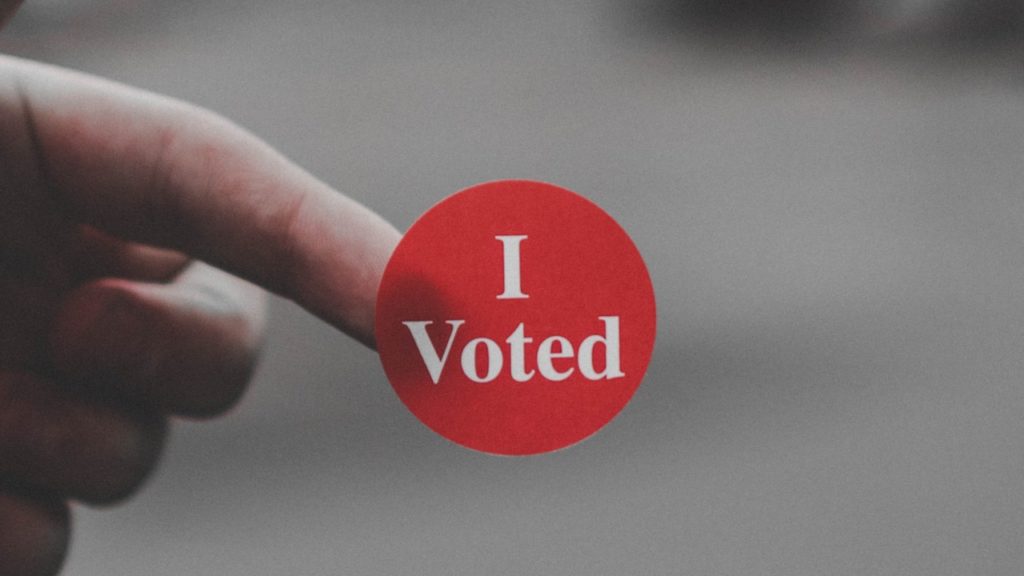I have a long track record of taking costly steps in explosive conversations. A particularly fiery one happened only a few months ago.
The presidential primary season was in full swing. A co-worker and I were talking about a certain politician, a candidate who is generally regarded as controversial. But for my co-worker, a young woman who is an unapologetic supporter of this man, there was nothing to discuss. This candidate, this maker of promises and torchbearer for a new American dream, was it — the real deal, the one who could finally be trusted.
I made a comment about an issue I believe to be fairly nonnegotiable according to Scripture and, since we are both believers, assumed there would be no controversy. But I set off a landmine. In an instant, the color in my co-worker’s face changed, her voice raised, and I found myself being “corrected” on every syllable I had just uttered.
I was shocked. In the moment, I did my best to simply change the subject, and the next day I apologized for upsetting her. But the damage to the relationship had been done, and I wasn’t quite sure why. In the weeks that followed, I paid more attention to political conversations taking place around me, and I realized that this officemate of mine was not alone in her approach.
Lately, men and women on both sides of the political divide are holding their candidate of choice in such high esteem that there are no longer any issues to discuss. If I’m honest, I’ve done it myself. I’ve made excuses for less-than-godly behavior or policies simply because the politician behind those choices was on “my team.” The Bible, however, is particularly clear on this point. Our “team” is the kingdom of God. Only the kingdom deserves our complete allegiance, and only Jesus deserves our full trust and hope. So, what is a follower of Jesus to do with politics?
Throughout church history, there have been some who have seen politics as a means to reorder society so that it aligns with God’s kingdom, at least as far as that can be imagined. Others have concluded that the compromises necessary for every system of government can have no part of the Christian life. These folks divorced themselves from politics entirely, refusing to participate in the process altogether. But there is a third way.
The trick question that changed everything
Jesus’ ministry was political. How could it not be when He claimed to be bringing a new kingdom to earth? Still, Jesus rarely commented on the imperial government in Rome. As a first-century Jew from Galilee, Jesus was not a free citizen. He was a subject of Rome, little more than a slave in the eyes of the ruling class. Like His fellow countrymen, Jesus had no say in the political process. He didn’t get to vote for the next emperor, and He was never asked His opinion on the performance of Pontius Pilate or Herod Antipas.
What Rome required was total obedience; it could be fatal to voice criticism or dissent. And that’s precisely what some Pharisees and Herodians were hoping they could get Jesus to do when they came to Him with a question full of landmines: “Teacher, we know that you are true and teach the way of God truthfully, and you do not care about anyone’s opinion, for you are not swayed by appearances. Tell us, then, what you think. Is it lawful to pay taxes to Caesar, or not?” (Matthew 22:16–17).
You can almost taste the deception. They begin with flattery, and then present Jesus with what they believe to be an impossible choice. If He says the people should be loyal to God alone and stop paying taxes to the empire, the people might cheer, but Jesus’ enemies would have ample grounds to pursue a charge of treason against Him. On the other hand, if He says that the people should pay their taxes, it might discredit Him among His supporters, most of whom viewed Rome’s rule as illegitimate and an affront to God.
Jesus doesn’t fall into the trap, and His response is brilliant. He asks to see a Roman coin, a denarius, and then asks whose image appears on it. Of course, everyone knows that Caesar’s image is on the coin. So Jesus tells them, “Therefore render to Caesar the things that are Caesar’s, and to God the things that are God’s” (Matthew 22:21). Mic dropped.
With a simple turn of phrase, Jesus set everything political in its proper place. Pay taxes to Caesar, not because he’s a god or because he deserves your loyalty and praise, but because the coins used to pay the tax have his picture on them. Jesus took a divisive political issue and sucked all the passion right out of it. In an instant, paying taxes became not about allegiance to Caesar, but a detached civic duty.
But Jesus didn’t stop there. He also said we are to give God that which belongs to God. More precisely, we are to give God that which has His image stamped upon it. Every ear in that Jewish crowd would have understood exactly what He meant: “So God created man in his own image, in the image of God he created him; male and female he created them” (Genesis 1:27). Our humanity belongs to God. He’s put His image upon us. God deserves our loyalty, our affection, our praise, and yes, our passion. It’s all rightfully His, by virtue of His image pressed upon our lives.
What we owe Caesar today
“Caesar” may look a bit different in our day, but we still owe the government its due. Yes, that includes taxes, but in a democracy like ours, it also includes our vote. While I believe there may be rare times when Christians should abstain from voting, thereby effectively voting with their silence, I don’t think this practice can or should be the norm. A democracy can only function properly if its citizens voice their views at the ballot box. In that, voting is essential for the common good, something that God says His people should be concerned about (Jeremiah 29:7; 1 Timothy 2:1–2). At the same time, no political party, candidate or government program should ever receive our complete loyalty or passion. Those belong only, and fully, to God.
Even our vote, though we give it to a particular set of candidates, really belongs to God. We are called to be Christians every day, not least of which is Election Day. How we vote, then, should reflect the values of God’s kingdom. And that’s where the difficulty lies. No candidate or party is completely aligned with God’s perfect character and will. On top of that, well-meaning and devout believers can disagree on which candidate in any given race is best suited to govern in a way that prioritizes kingdom values. Every choice on the ballot is in a sense a vote for the lesser of two evils. No candidate will fix this broken world. No fallen human being will be able to single-handedly usher in the kingdom of God. Therefore, we must dispassionately choose.
Still, one candidate may be staunchly pro-life and willing to take any action within her sphere of influence to protect the preborn, while another may have a heart for the poor and will seek justice for those without a voice. God is concerned with both the preborn and the poor (and lots of other issues besides). What is a Christ-follower to do?
Here are a few things to keep in mind, regardless of your political leanings:
1. Priorities
Our priorities cannot be shaped while we’re standing in line at the polling place with a voting guide in hand. We must know the values of God’s kingdom long before that. As God transforms our minds and hearts through time with Him and His Word, our priorities will be shaped by His heart, rather than the celebrity influencers we love (even the Christian ones) or that woke post we just read.
2. Passion
Remember that only God should get our passion. We should never be so sold out for a candidate or party that we are willing to divorce ourselves from our brothers and sisters in Christ. Our brothers and sisters in Christ always come before politics. The good news is that once we learn to separate our passion from our politics, we are free to affirm the good in whatever candidate or party we find it. That can go a long way toward building bridges with those on the other end of the political spectrum.
3. Voice
Our political voice is more than voting — and our voice belongs to God every day of the year. Speak up for justice. Speak up for morality. Speak up for those who can’t speak for themselves. Speak up, and stand up, for the values of the kingdom at home, at work and in your community, whether there’s an upcoming election or not.
4. Purpose
Regardless of the outcome of a particular election, remember that God’s purposes will endure. No one slips into office without God’s permission. Jesus even told Pilate, “You would have no authority over me at all unless it had been given you from above” (John 19:11). God is still on His throne, no matter who’s in the White House or what party controls the House or the Senate. If we’re passionless about our politics, we can accept the results of any election, knowing that our leaders are still subject to Christ. He still holds the power and the future in His hands.
These days, I don’t spend much time defending candidates or political parties, but I do talk about politics quite a bit. I talk about issues, the issues I believe Jesus cares about most. And not too long ago, I stepped back into the minefield with that same co-worker. This time, though, I tried to keep our conversation focused on the kingdom. I’m sure we still don’t agree on every issue, but it’s amazing how much common ground there is when we reserve our passion for Jesus instead of the candidates.
Copyright 2020 John Greco. All rights reserved.











